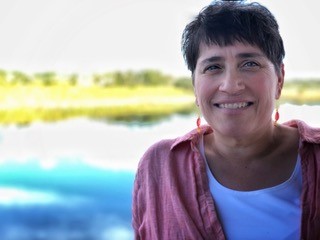Going Beyond Needs Assessments: Using Learning Metrics to Support High-Impact Faculty Development
 Presenter:
Presenter:
Carol A. Hurney, Founding Director of the Center for Teaching & Learning, Colby College
Carol A. Hurney earned her Ph.D. in biology at the University of Virginia. Currently she is the founding director of the Center for Teaching & Learning at Colby College. In this role, she works with students and faculty to enhance the Colby academic culture through programs that encourage fresh perspectives on the teaching and learning endeavors informed by the scholarly literature. During Carol’s 20+ years of college teaching, she has taught introductory courses to Biology majors and non-majors infused with active learning, inquiry-based labs and authentic writing experiences. Her scholarly interests include learner-centered teaching, active learning, and measuring the impact of educational development on faculty.
Description:
Developing high-impact educational development experiences for faculty often begins by determining their needs. To do this, many Centers for Teaching and Learning and other faculty development entities deploy surveys to their faculty and instructors. Unfortunately, needs assessment surveys, from my experience, tell educational developers what they already know—faculty need everything and have no time to address these needs. Additionally, most needs assessment instruments related to teaching only include items about pedagogical innovations or other instructional strategies and rarely ask faculty about needs related to growing a fulfilling teaching career in academia. Thus, program development emanating from needs assessment tends to target the “low hanging fruit” that faculty think they need, rather than a more holistic approach to teaching and their teaching careers. This session explores how the Faculty Learning Outcome (FLO) framework, developed as an assessment tool, can also support robust faculty development program development and implementation.
Learning Outcomes:
At the end of this workshop, participants will be able to:
- Reflect on ways the Faculty Learning Outcome framework supports faculty development strategic planning processes,
- Utilize assessment data from the FLO framework as a case study for creating high-impact educational development experiences, and
- Apply the Faculty Learning Outcome framework to their institutional context